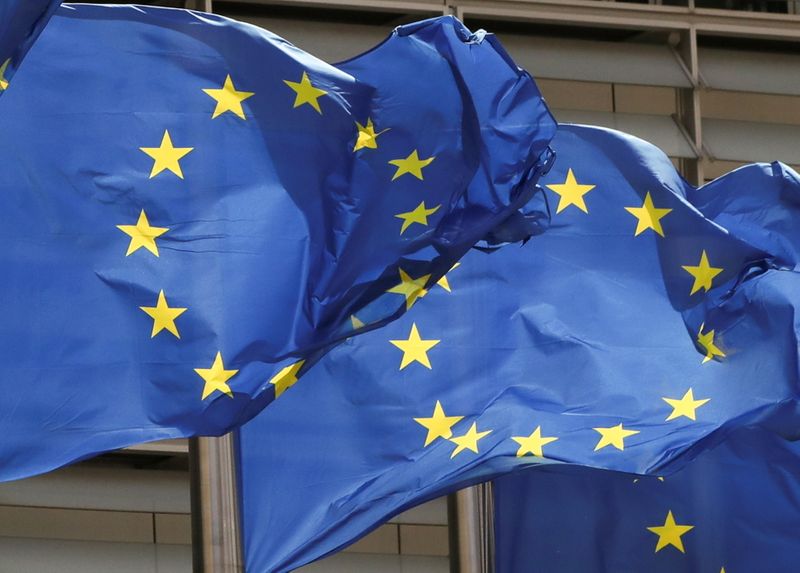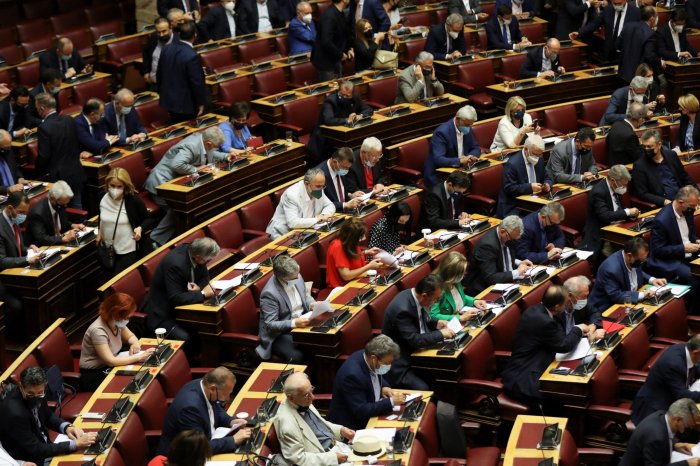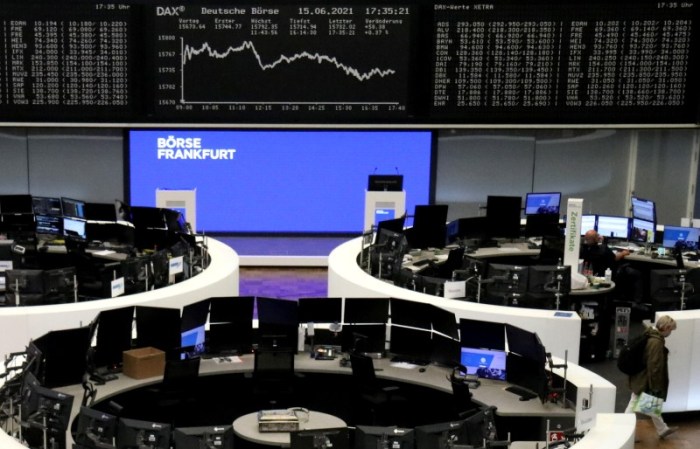(Reuters) -The first bond backing the EU’s COVID-19 recovery fund rallied strongly a day after issuance on Wednesday, while euro area and U.S. government bond yields dipped as investors awaited the Federal Reserve’s policy decision.
The European Union raised 20 billion euros ($24 billion) from a 10-year bond on Tuesday in the largest-ever single-tranche institutional debt sale that saw near-record demand of 142 billion euros, taking a big step towards establishing itself as a major debt issuer..
The bond rallied sharply in the secondary market in further evidence of strong demand, with its yield – 0.086% at pricing – down 5 basis points to around 0.04% on Wednesday.
The rally was similar to that following the EU’s first issuance last October backing the SURE unemployment scheme, a smaller support programme.
With demand far above the deal size, much investor appetite was left unsatisfied, bankers involved with the deal said.
“Given the particularly low (investor) allocations compared to normal, you’re going to get more follow-on demand than you would typically see,” one of the bankers said.
It attracted such large demand at issuance even though the EU capped orders it considered from hedge funds, which, inflating their demand to secure better allocations, have been a major driver of large bond sale order books.
Investors were keen to buy the first issuance of what will become a much more liquid funding programme than SURE, the bankers said.
The European Central Bank upholding accelerated bond purchases for the third quarter has also given investors confidence to buy into sizable debt sales.
In the broader market, bond yields dipped as the focus was on the conclusion of the U.S. Federal Reserve meeting.
The benchmark 10-year yield was last half a basis point at 1.4939% while investors waited for signs that the policies put into place last year to combat the economic fallout from the pandemic, including a massive bond-buying programme, may be altered.
Fed officials are expected to at least flag the pending start of talks on tapering its bond purchases, while attention will also be on new interest rate and economic projections to show how much policymakers’ views have changed since March.
Germany’s 10-year yield, the euro area benchmark, was down slightly over one basis point to -0.243%, along with most other 10-year yields.
In recent weeks, bond yields, which have fallen on both sides of the Atlantic – closely correlated – have shrugged off a spike in U.S. inflation.
“U.S. yields will probably be the main driver of direction of European yields over the coming three months and I think the Fed rhetoric on tapering and where their inflation targets are will be of interest,” said Nick Sanders, portfolio manager at AllianceBernstein.
In the primary market, Germany raised 4.085 billion euros from the auction of a new 10-year bond.
($1 = 0.8252 euros)
(Reporting by Yoruk Bahceli; Editing by Mark Potter and Alex Richardson)
























